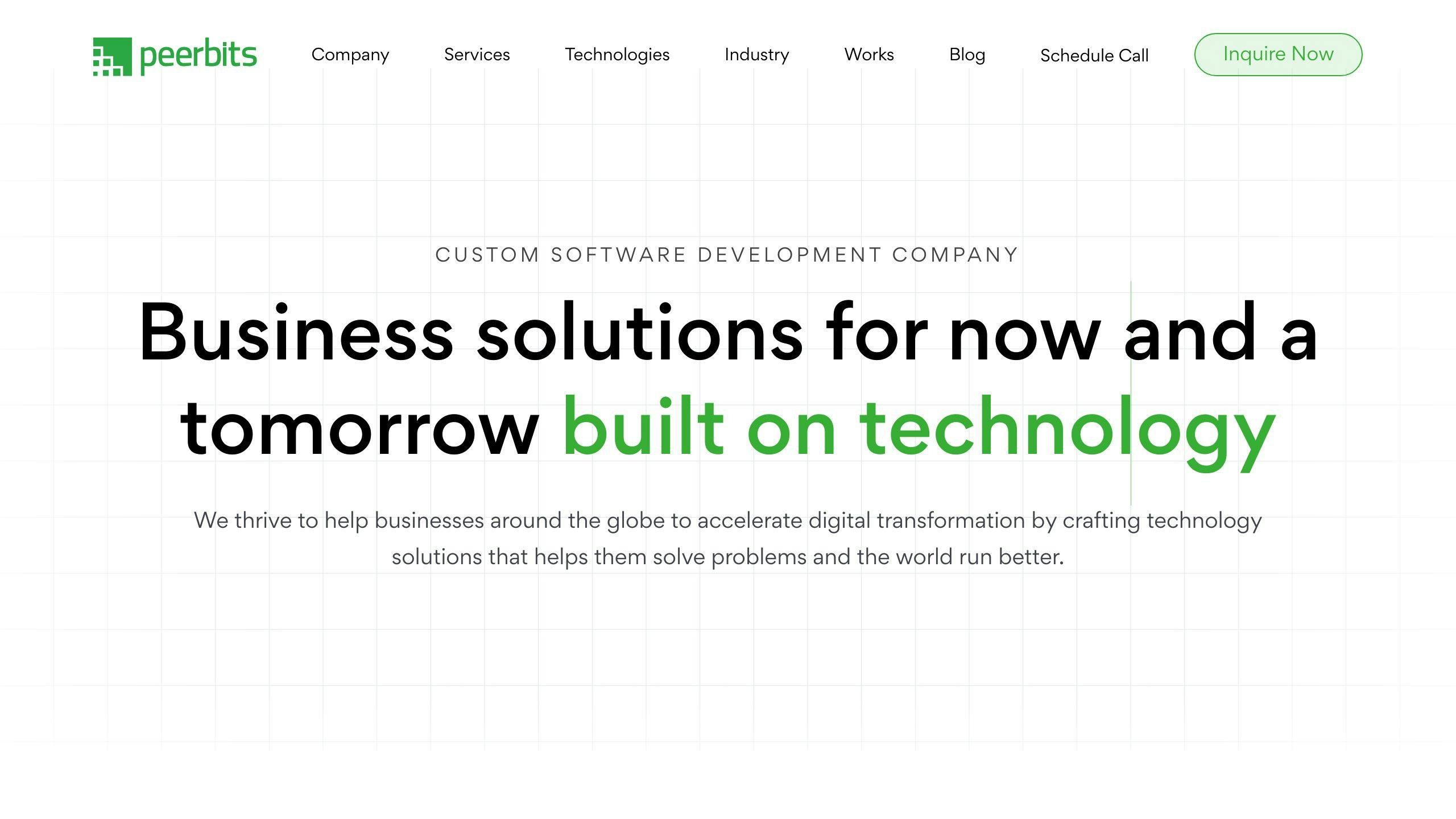Ensuring equitable collaborations between startups and large corporations is crucial for mutual success. Here’s a straightforward guide:
- Equitable Partnerships: Vital for startup success, allowing access to large resources without losing control.
- Popularity & Risks: Over 75% of large companies collaborate with startups, but risks include loss of control and unfair deals.
- Best Practices: Tailor agreements, ensure fair profit sharing, and maintain balanced decision-making.
- Case Studies: Programs like Peerbits and Toyota START offer models for balanced partnerships.
- Key Strategies: Vet partners carefully, negotiate diligently, and ensure the agreement includes flexibility and balanced governance.
This guide aims to help startups navigate partnerships with large companies, ensuring they remain beneficial and equitable.
The Rising Popularity of Startup-Corporate Collaborations
-
Nowadays, more than 75% of big companies work with startups to get new and exciting technology and to be more innovative.
-
Big deals, like the one between Walmart and Handshake, let big companies use new solutions quickly.
-
Programs like Techstars are making thousands of these partnerships happen every year.
The Dangers of Inequitable Partnerships
Startups often find it hard to make fair deals with big companies. Some common problems include:
-
Losing control: Big companies might ask for a big part of the startup in exchange for money and help in selling products, which can take away the startup’s ability to make decisions.
-
Unfair deals: Big companies might end up with much better terms in the deal, like more shares, control over the startup’s ideas, or more money from sales.
-
Being too rigid: Big companies can be slow to change, which can stop startups from trying new things and being innovative.
The Need For Equitable Collaboration Practices
It’s really important for partnerships to be fair and consider what both sides want. Some key points include:
-
Customized agreements: Each deal should be made to fit the specific partnership, based on what each side brings to the table.
-
Sharing profits fairly: How much money each side makes should match up with how much they own.
-
Keeping control over decisions: Startups should keep the main say in what happens with their product, but still work together with their partner.
Making sure partnerships are fair lets startups use the big resources of large companies without giving up too much control or stopping innovation.
Case Studies On Equitable Startup Collaborations
Peerbits

Peerbits helps startups work with big companies while keeping their freedom and control. They focus on three main things:
- Customized Partnerships: They make sure deals are made to fit what each startup needs. This helps startups get what they need from big companies without losing their independence.
- Profit Sharing: They set up a way for startups to make money based on how much they contribute. This means startups keep most of the ownership.
- Decision Independence: Startups get to decide on their product and what to do next. Peerbits gives advice but doesn’t tell them what to do.
This way, startups can grow fast by using what big companies offer without giving up their control. More than 80% of startups working with Peerbits get more funding later on.
Toyota START and Target Techstars Accelerators
Toyota and Target have programs that help startups in a fair way. They offer:
- Balanced Agreements: They make deals that give startups money, help, and a way to sell their stuff without taking too much in return.
- Co-Creation Opportunities: Startups and big companies work together to create new things. Startups keep the rights to their ideas.
- Profit Sharing Formulas: They figure out how to split money in a way that’s fair, based on what each side does. Startups get to keep most of the profits.
- Mentorship not Mandates: Startups lead the way in making new things and deciding their path. Big companies give advice, help with money, and open doors but don’t control them.
These programs show how startups and big companies can work together in a good way. Over 75% of startups that finish these programs do well later, either by selling their business or working with big companies for a long time. It’s a win-win for both new and established businesses.
Best Practices For Structuring Fair Deals
Making sure that startups and big companies work together in a way that’s good for both sides takes some planning. By making sure everyone wants the same thing, sharing ownership in a smart way, and making decisions together, both sides can benefit.
Aligning Goals and Expectations From The Outset
Talking openly from the start is important. Both sides should:
- Clearly say what they want to achieve and what’s important to them
- Share what they can offer to the partnership
- Agree on what success looks like together
Writing these things down in a simple plan helps avoid confusion later.
Structuring Ownership and Profit Sharing
Here are some ways to decide who owns what and how money is shared:
| Framework | Description | Pros | Cons |
|---|---|---|---|
| Revenue Share | Split based on sales | Everyone wants to sell more | Doesn’t consider costs |
| Profit Share | Split based on actual profit | Takes costs into account | Hard to guess future profits |
| Milestone-Based | Get more ownership by hitting goals | Rewards hard work | Can be tricky to keep track of |
Mixing these methods is often a good idea. The main thing is to match the setup with what each side brings to the table.
Maintaining Balance Through Shared Decision-Making
To make sure no one gets too much power:
- Set up a team of people from both sides to make big decisions
- Have regular meetings to check how things are going
- Look at the partnership agreement now and then to make sure it’s still working
- If there’s a big disagreement, consider getting help from a neutral third party
Sharing control lets everyone have a say in what happens, which is good for the partnership.
sbb-itb-3e7f9b3
Implementing Fair Collaboration Strategies
Checking Out Potential Big Company Partners
Before teaming up with a big company, startups should really look into their history of working with smaller companies. Aim for partners that:
- Know how to make deals that are fair for startups
- Can show examples of startups that did well after partnering with them
- Share info about how these partnerships went, like how much of the startup the big company ended up owning, how profits were split, and how much the startup was worth if it got sold
Startups should also take a close look at the deal terms being offered and talk it out to get the best position possible. Important things to look at:
- How much of your company the big company wants to own
- Who gets to make the big decisions
- How profits or revenue will be shared
- How your startup’s ideas and inventions will be protected and used
By picking partners who treat startups right and carefully checking the deal terms, startups can get a lot from the partnership without losing their independence.
Keeping Ownership and Control
To make sure they stay in charge, startups should:
- Keep the big company’s share of the startup to 20-30% at most
- Set up decision-making groups where the startup founders have the final say
- Make sure the startup founders have rights in the deal that protect their say
- Plan for ways to end the partnership without the big company automatically taking over if the startup does really well
By holding onto control and setting up ways to make decisions together, startups can work with big companies without giving up their direction.
Making Legal Agreements That Work For Both Sides
The deal should clearly lay out how both sides will work together, keep things open, and solve any disagreements:
- Have regular meetings between leaders to stay on the same page and tackle any problems
- Agree on goals and how meeting them will affect payments or benefits for both sides
- Include ways to handle disagreements with help from someone neutral
- Share updates on how the partnership is doing with everyone involved
This approach, based on trusting each other and relying on each other, helps make sure the partnership stays fair and strong over time.
Conclusion and Key Takeaways
When startups and big companies work together the right way, both can grow a lot. It’s all about making deals that are fair, where both sides agree on what they want to achieve and how they’ll do it.
Essential Elements of Equitable Partnerships
Here are the main things needed for a good partnership:
-
Shared vision and objectives: Everyone needs to be on the same page about what they want to get out of the partnership.
-
Customized, flexible terms: One-size-fits-all doesn’t work. Each deal should be tailored and able to change as needed.
-
Balanced control and decision-making: No side should have all the power. Working together on decisions is key.
-
Fair distribution of ownership and profits: The way money and ownership are split should be fair, based on what each side puts in.
-
Clear governance and conflict resolution: Having rules for how decisions are made and how to solve disagreements helps keep things smooth.
-
Intellectual property protection: Startups need to keep control over their main ideas and inventions.
These points help make sure both sides benefit.
Critical Success Factors
To make these partnerships work well, startups should:
- Vet potential corporate partners carefully – look into their history with other startups.
- Negotiate agreements meticulously – make sure the details about who owns what, who gets to decide things, how profits are split, and how ideas are protected are all clear.
- Embed flexibility and balanced governance in the contracts, so the partnership can adapt over time.
- Maintain transparency and communication by having regular meetings and updates.
- Watch for red flags – if the big company tries to take too much control or push the startup into unfair deals, it’s important to speak up.
By paying attention and making sure the deal is fair, startups can work well with big companies and keep their independence.
Related Questions
Is 1% equity in a startup good?
If you’re giving advice to a startup and they offer you 0.5-1% of the company’s shares, that’s pretty normal. This is for helping out a few hours each month over 1-2 years. The amount of equity you get depends on how big the startup is, how much they’re worth, and how much help you’re giving. Even though 1% might not sound like a lot, it could be worth a lot if the startup does really well. For advisors, 1% is usually a sign you’ll be playing a big role.
How should equity be split in a startup?
Most of the time, founders split the company’s shares equally. But, things like who had the idea first, who has more experience, who’s working full-time, and who’s in charge can lead to unequal splits. There’s no perfect way to do it; it’s all about talking openly and deciding based on what each person brings to the table. You can always change the split later if roles change.
How do startups manage equity?
Startups keep track of who owns what part of the company using something called a capitalization table, or "cap table." There are special software tools to help manage this, showing how the ownership split might change with new investments. Usually, people earn their shares over time, which helps make sure everyone’s committed. Keeping a good handle on the cap table is important for keeping everyone motivated and attracting new investors.
What are the key criteria for a successful startup-corporate engagement?
For a good partnership between a startup and a big company, you need:
- Clear goals that match what the business wants to achieve
- Enough resources and people
- Understanding different ways to work together, like accelerators
- Clear agreements on important stuff like who owns new ideas, how decisions are made, and how money is split
- Picking the best way to work together based on what you need
- Keeping everyone informed and being open about how things are going
Planning carefully from the start instead of just going with a standard approach can help make sure the partnership really helps both sides.
Related posts
- Startup and Small Business Collaboration Strategies
- Building Equitable Small Business Collaborations
- Fair Startup Collaborations with Corporates
- Startup Helping Companies Forge Equitable Partnerships

